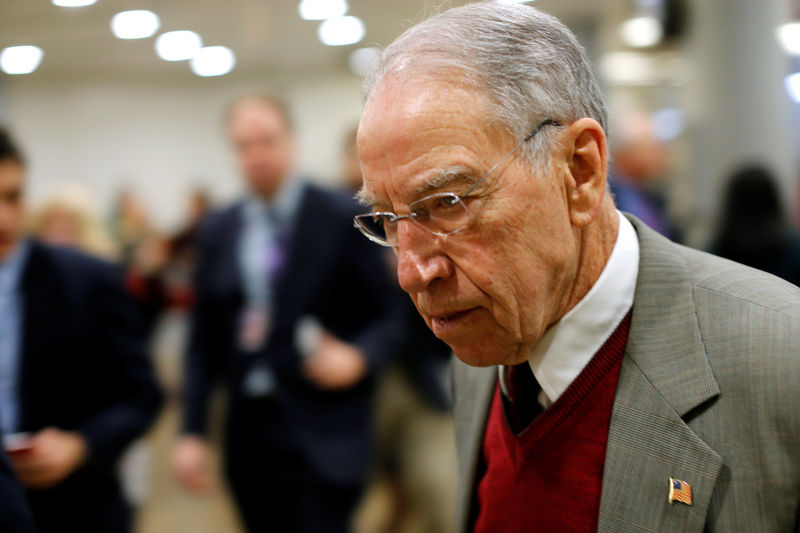Street Calls of the Week
By Sarah N. Lynch
WASHINGTON (Reuters) - A U.S. Justice Department memo issued in January to employees about their communications with Congress may run afoul of rules designed to protect government whistleblowers from being muzzled, a Republican lawmaker said on Tuesday.
In a Feb. 5 letter to Attorney General Jeff Sessions, Senate Judiciary Committee Chairman Charles Grassley said he feared the Jan. 29 memo was an attempt to "prevent direct communications between federal employees and Congress."
Grassley, a whistleblower advocate, released both documents on Tuesday. He has criticized the Trump administration's efforts to prevent Congress from getting access to information from executive branch agencies.
The memo, attached to Grassley's letter, was addressed to U.S. attorneys' offices and heads of the Justice Department's other components, such as the criminal and civil divisions.
The memo states that staffers "should not communicate with Senators, Representatives, congressional committees or congressional staff without advance coordination and consultation" with the department's Office of Legislative Affairs.
Justice Department spokesman Ian Prior said the agency was reviewing the letter.
In his letter to Sessions, Grassley said he feared that the memo failed to let Justice Department employees know they have the right to make protected disclosures to Congress about potential waste, fraud or abuse.
"Denying or interfering with the right of employees to furnish information to Congress is also against the law," Grassley wrote. "Please review this memorandum and address the deficiencies I have raised as soon as possible with a corrective communication to all employees who received it."
Last June, Grassley sent a letter to President Donald Trump to complain about a Justice Department legal opinion which claimed that only congressional committee chairs were "constitutionally authorized" to obtain information from executive branch agencies.
In that letter, Grassley called the legal opinion "nonsense" and said the Justice Department's Office of Legal Counsel's views exposed a "shocking lack of professionalism and objectivity."
